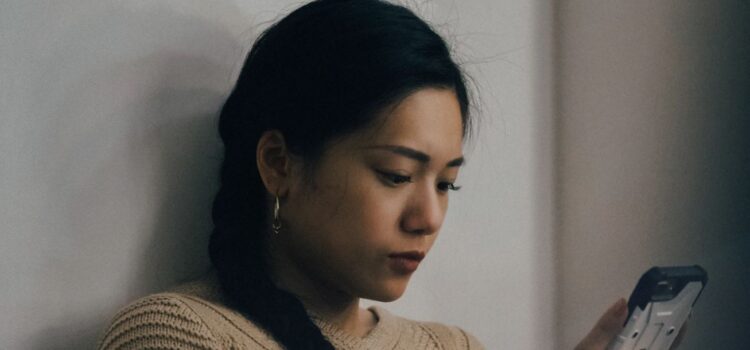Subtle Art of Not Giving a F Book Victim Chic

What is victimhood chic? How can blaming others for your bug create even more bug?
"Victimhood chichi" is Marker Manson'due south term for the trend of playing the victim. Social media heightens this problem by giving people a platform to join the public arraign game. However, this trend creates a repeating cycle of outrage that undermines productive conversation.
Continue reading to learn more than about the victimhood chic tendency.
Victimhood Chic
Many people are born with disadvantages. They may feel as though they got the brusque end of the stick and they're helpless to do anything almost it, and then they avert taking responsibleness. This trend of playing the victim is what the author of The Subtle Fine art of Non Giving a F*ck calls "victimhood chichi."
But though it's non their error, they're notwithstanding responsible — and choices have impact.
For example, in poker, a player who gets poor cards can still win. The outcome of the game is determined by the players' choices. Information technology's the same with life.
Example: A group of teens with obsessive-compulsive disorder (OCD) were trying a new therapy. Therapists emphasized that the obsessive thoughts were non the teens' fault. They encouraged the teens to accept these thoughts, but to cull a value more than important than their OCD value (for instance, instead of the value of washing hands repeatedly, information technology might exist getting out of the house more often). With new values in place, desensitization exercises were more constructive. The teens learned that while they hadn't chosen their conditions, they could cull how to answer.
Despite past tragedies, problems, and bad experiences, we are all the same responsible for moving on and making choices.
Perpetual Victims
People who follow victimhood chic frequently try to shift responsibility for solving their issues to others. Blaming someone else creates a feeling of moral rightness, or a high.
Social media assist enable this beliefs by making it easy to shift responsibility to someone else. People bring together in a public blame game, sharing injustices to generate sympathy and attention, which rewards those who feel victimized. Moral indignation makes them feel good and they get fond to the feeling of victimhood chichi.
Here are some subversive furnishings:
- People on both the right and left, rich and poor, from every demographic group merits to be victims.
- People who are offended merits they're being oppressed, and expect outrage and attending.
- There's a repeating bike or spiral of outrage: Media discover something offensive, they broadcast it, this creates outrage, they circulate the outrage to generate more than outrage.
- The propensity of so many to declare themselves victims over small things distracts attention from real victims.
- Information technology threatens democracy. Function of living in a autonomous social club is tolerating people and views you lot disagree with.
Nosotros've all seen this counterproductive miracle. Instead of participating, you should:
- Maintain a healthy skepticism toward media and avoid categorizing others.
- Practice healthy values of honesty, doubt/doubt, and open-mindedness over subversive values of existence right or morally superior.
- Nurture democratic values to support our political organization.
Instead of playing the victim and expecting special treatment when you lot encounter disagreement, accept responsibility for your feelings and choices.
Responding to Tragedy
Tragic and horrible things happen. You lot don't choose them only you do choose how yous handle the ramifications and whether or not you choose to play the victim.
For example, if y'all're robbed, yous didn't choose information technology, but you lot fabricated choices nonetheless. For instance, y'all made choices at the time (running, screaming, or fighting), and later you lot chose how to respond to the physical and emotional aftereffects.
In 2009, a Pakistani schoolgirl, Malala Yousafzai, was shot in the face by the Taliban for speaking out against a ban on educating girls. She most died, but after recovering she chose to speak out against violence and oppression of girls in Muslim countries. Despite continuing threats on her life, she wrote a book, won the Nobel Peace Prize, and inspired others to help bring change.
We all experience pain of some kind — we decide what it means and how to respond and whether we play into victimhood chichi or not.
Source: https://www.shortform.com/blog/victimhood-chic/
0 Response to "Subtle Art of Not Giving a F Book Victim Chic"
Post a Comment